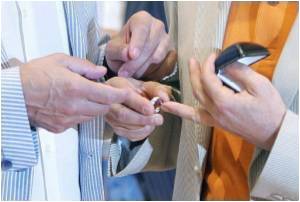The health needs of bisexual men are unique compared to exclusively homosexual and heterosexual men, say Indiana University researchers.

"In terms of designing a specific program for behaviorally bisexual men, we've learned it will not be effective to openly advertise about it or put it on billboards; we have to be more discreet," said Brian Dodge, associate director of the Center for Sexual Health Promotion at IU. Dodge's research for nearly 10 years has involved bisexual behavior and associated health needs, yet these findings from his recent study were "surprising."
"The fear of disclosure, desire for privacy, and anticipation of stigma are even more problematic than we anticipated," he said. "The reasons for these issues eventually need to be addressed not only with bisexual men but also at the societal level if we are to increase participation in effective health services without operating in stealth."
This and three other studies discussed at the American Public Health Association's annual meeting are part of a larger study by Dodge and his collaborators, who are looking at health issues specific to bisexual men. This research approach is unique because most studies have combined bisexual men with gay men in previous behavioral science research.
The IU research involved 75 men in the Indianapolis area who had sex with at least one man and one woman within the previous six months. The participants each underwent in-depth interviews, 15 of which were conducted in Spanish. Of the participants, 25 were black, 25 were white and 25 were Latino.
Dodge's study "Administering Sexual Health-Related Services to Bisexual Men: Privacy, Trust and Appropriate Messaging" was the recipient of the annual Excellence in Abstract Submission award from the HIV/AIDS Section of the APHA. Dodge is delivering oral presentations about this, as well as "Community Based Research in 'Hidden' Communities: Understanding Individual and Social Health Concerns among Bisexual Men" and a poster presentation, "Sexual Behaviors and Experiences among Bisexual Men in the Midwestern United States." Co-investigator Omar Martinez is also presenting on issues specific to Latino participants in his talk "Sexual Health and Access to Care: Voices from Bisexual Latino Men in the Midwestern United States."
Dodge, an associate professor in the Department of Applied Health Science in IU's School of Health, Physical Education and Recreation, will discuss "Administering Sexual Health-Related Services" Tuesday, Nov. 1, at 10:30 a.m. in the Washington Convention Center. Co-authors are Phillip Schnarrs, Gabriel Goncalves, Michael Reece and Omar Martinez, all with the IU School of HPER; David Malebranche of Emory University School of Medicine; Ryan Nix of Step Up Inc. in Indianapolis; Barbara Van Der Pol of IU School of HPER; and J. Dennis Fortenberry of the IU School of Medicine.
Source-Eurekalert














